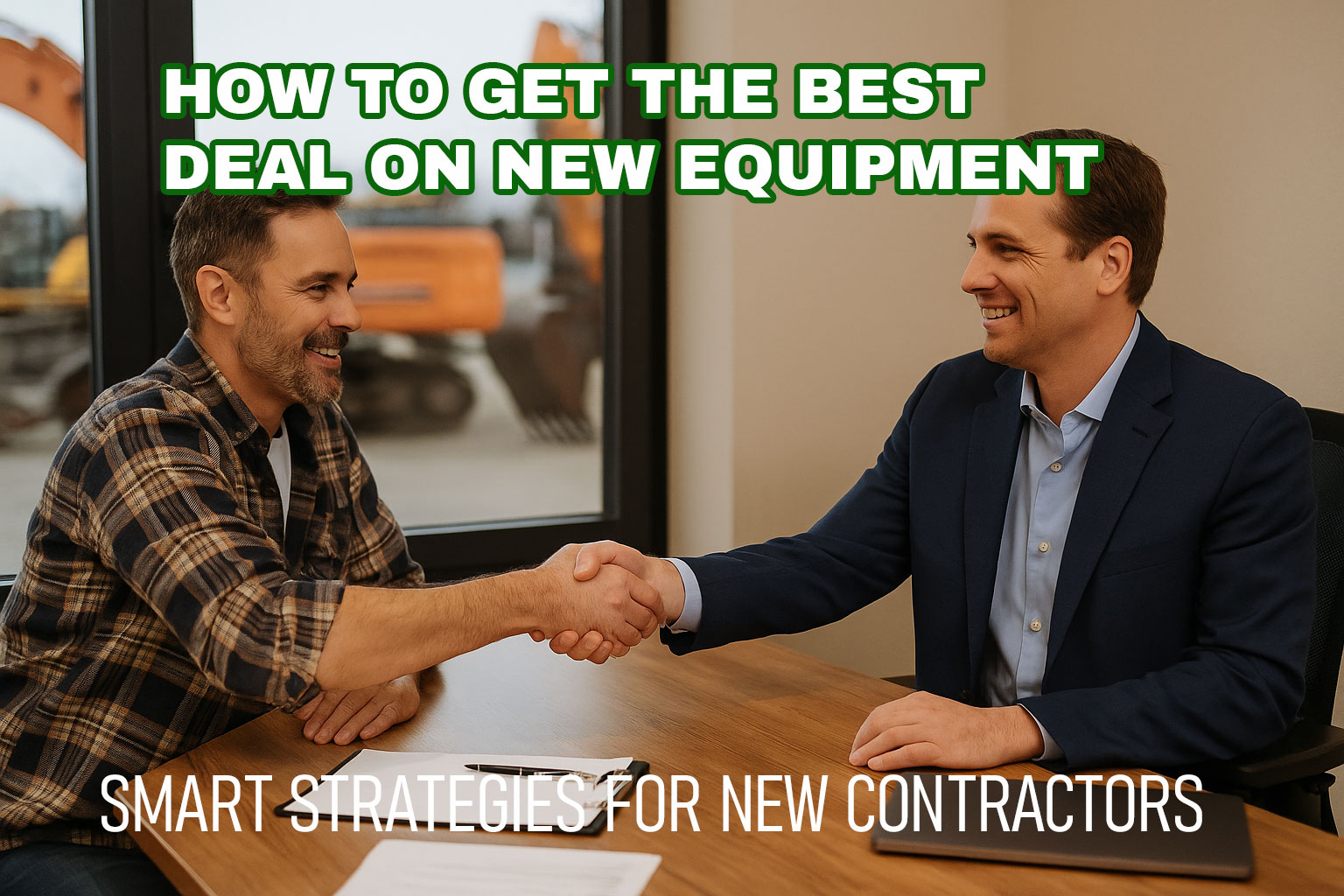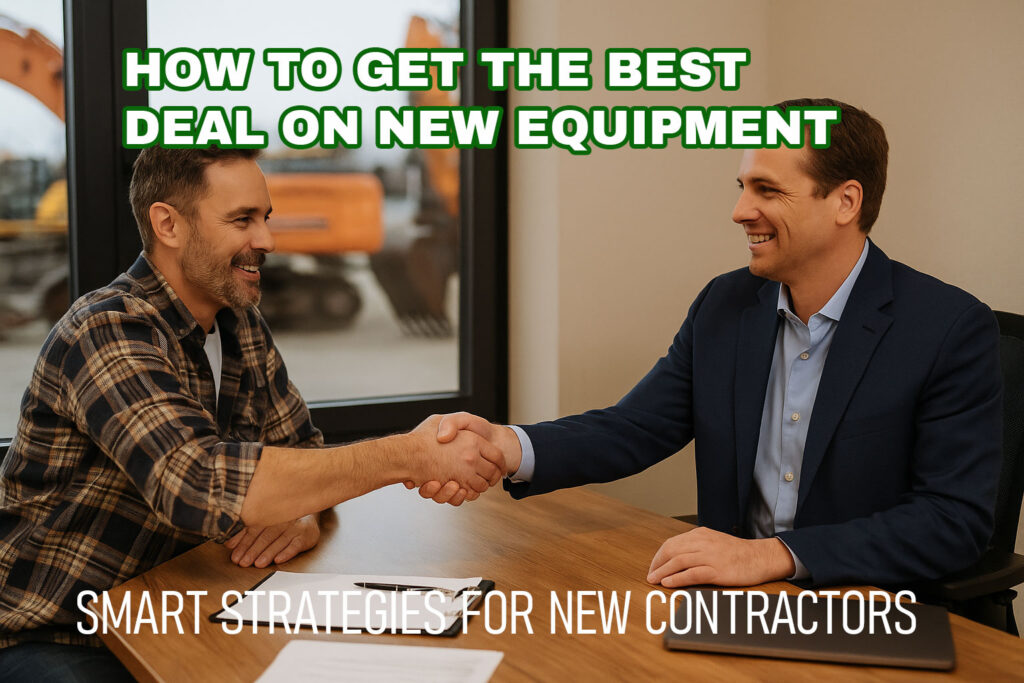How to Negotiate Equipment Prices Like a Pro: A Guide for New Contractors


Thinking about buying your first piece of heavy equipment? Welcome to the next level of being a contractor – but also, get ready for some sticker shock. These machines aren’t cheap, and thanks to inflation, even used gear can cost a small fortune. But that doesn’t mean you have to overpay.
In this article, we’re pulling insights from a recent ProfitDig Live episode featuring Chris Work and Jeff Spencer. If you’re a new contractor getting serious about owning your own equipment, this is what you need to know before signing anything.
1. Always Get Multiple Quotes
Rule #1: Never settle for one quote. Jeff recommends getting at least three to five quotes from different equipment dealers for the same type and size of machine (e.g., 70,000 lb excavator). This gives you leverage.
Even if you’ve got your heart set on a specific brand, those alternate quotes are your bargaining chips. Use the cheaper ones to ask your preferred dealer, “Can you match this or do better?”
2. Make Sure You’re Comparing Apples to Apples
Don’t just compare price tags. You’ve got to look at:
- Horsepower
- Hydraulic flow
- Track type
- Cab features
- Warranty and service deals
Some machines might come loaded with options – others might be stripped down. Jeff’s advice? Do your homework. Sales reps will pick your quotes apart if they’re not equivalent, and then you lose your negotiating power.
3. Know What the Dealer Can Actually Wiggle On
Yes, dealers have margins. And yes, sales reps work on commission. But you shouldn’t try to squeeze the rep too hard – they’ve got families, too. Instead, aim for negotiating with the dealership itself. That’s where the real room is.
If you show that you’re serious, even if they lose the sale this time, they’ll remember you. Next time, they might be more flexible.
4. Look at the Extras
Some dealerships include incentives like:
- Free filters for 3 years
- Oil changes during the warranty period
- On-site service perks
It’s not really “free” – the cost is usually baked into the price – but it’s still value. If you’re doing your own maintenance, Jeff suggests taking the filters up front and stocking them at the office. That way, you’re not stuck waiting when it’s time to change oil.
5. Relationships Matter – Long-Term
For new contractors, this is harder to pull off at first. But over time, you’ll build trust with dealers and reps. When they know you’re a repeat buyer who pays and doesn’t waste time, they’ll come to the table ready to deal.
Jeff’s real-world example? His John Deere dealer now gives him the lowest quote most of the time – no haggling needed. That came from years of consistent business.
Final Tip: Get Input from Your Crew
If you’re buying for your team, ask them what machines they like to run. You’ll get better buy-in and probably better performance from the field if they’re operating equipment they’re comfortable with.
Bottom Line:
Negotiating a good deal on equipment isn’t about being slick – it’s about being informed. Get multiple quotes, compare them closely, build relationships, and take care of the people on both ends of the deal. Do that, and you’ll stretch your dollars a lot further.
Looking for a smarter way to manage bids and job costs?
Try ProfitDig – the easiest-to-use bidding and costing tool for contractors.
Stop losing profit.
Build bids in minutes and track every dime with ProfitDig.
Start Risk-Free30-Day Money Back Guarantee